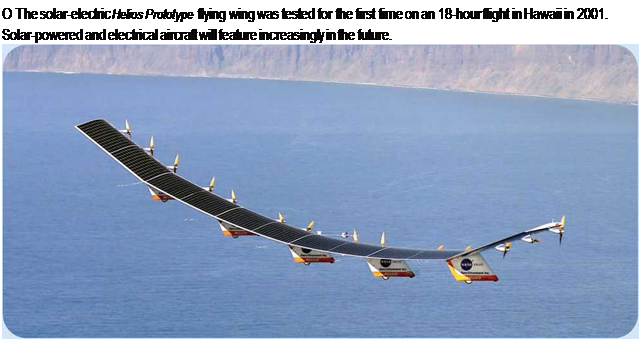Fuels of the Future
The fuels used by aircraft today are mainly made from oil. When they burn, they release gases into the atmosphere. One of these gases is carbon dioxide. Excessive carbon dioxide in Earth’s
О Photographed just before its landing in 1986, Voyager became the first aircraft to make a nonstop flight around the world without being refueled. Aircraft of the future will need to be increasingly fuel efficient.
atmosphere is one cause of the current global warming that Earth is experiencing. Scientists are working on ways to reduce carbon dioxide levels because global warming causes changes in the climate and weather patterns.
Burning fuels also cause pollution. The aviation industry, therefore, is beginning to think about developing new fuels for the future that will be kinder to the environment. Hydrogen is one possibility. Hydrogen is a very clean fuel, and, when it is burned, it produces heat and water.
Although hydrogen is used by rockets, there are problems with using hydrogen fuel in aircraft. It is difficult to transport and store safely because it catches fire very easily. Also, the production of hydrogen releases a lot of carbon dioxide. When cleaner ways of making hydrogen have been developed and storage issues addressed, its use as an engine fuel is likely to become widespread.
N
SEE ALSO:
• Energy • Engine • Rocket • Thrust ____
 |










